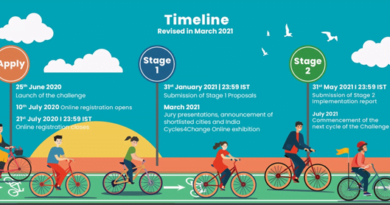Vivad Se Vishwas scheme
Context:
The Income Tax Department on Friday extended the deadline for filing declarations and making payment under the direct tax dispute resolution scheme ‘Vivad Se Vishwas’ (VsV) till March 31 and April 30.
About the Scheme:
- The vivad se vishwas scheme offers a complete waiver on interest and penalty to the taxpayers who pay their pending taxes by March 31.
- The scheme aims to benefit those whose tax demands are locked in dispute in multiple forums.
- The vivad se vishwas scheme was announced by Union Finance Minister Nirmala Sitharaman during her budget speech on February 1, 2020. The scheme aims to settle the huge number of pending direct tax cases.
- The Vivad Se Vishwas scheme offers to settle pending direct tax-related disputes.
- The scheme aims to resolve 483,000 direct tax-related disputes pending in various appellate forums.
- The scheme offers waivers on interest and penalty if the disputed tax amount is paid before March 31, 2020.
- If a taxpayer is not able to pay direct taxes by March 31st then, he will get further time till June 30th. However, in that case, he would have to pay 10 percent more on the tax.
- In case it is just the interest and the penalty which is being disputed, the taxpayer will have to pay 25 percent of the disputed amount till March 31, after which, it will be 30 per cent.
Background
- The vivad se vishwas scheme is similar to the ‘Indirect Tax, Sabka Vishwas’ scheme, which was introduced by Finance Minister Nirmala Sitharaman during her maiden budget presentation in July 2019.
- There are 4,83,000 direct tax cases pending in various appellate forums i.e. Commissioner (Appeals), ITATs, High Courts and the Supreme Court.
- In the last Budget, Sabka Vishwas Scheme was brought in to reduce litigation in indirect taxes.
- It resulted in settling over 1,89,000 cases.
- The “Sabka Vishwas” legacy dispute resolution scheme was aimed at reducing disputes related to excise and service tax payments.
Why need such a scheme?
- At present, there are as many as 4,83,000 direct tax cases pending in various appellate forums i.e. Commissioner (Appeals), ITAT, High Court and Supreme Court.
- The idea behind the scheme is to reduce litigation in the direct tax arena.
Proposals in the Bill
- A taxpayer would be required to pay only the amount of the disputed taxes.
- he will get complete waiver of interest and penalty
- he pays by 31st March, 2020.
- Those who avail this scheme after 31st March, 2020 will have to pay some additional amount.
- The scheme will remain open till 30th June, 2020.
- Taxpayers in whose cases appeals are pending at any level can benefit from this scheme.
Objectives of the Bill
- It aims at reducing vexatious litigations in a speedy manner that are related to the direct taxes payments.
- As per several reports, over Rs 9 lakh crore worth of direct tax disputes are pending in the courts.
- The government aims to recover a big share of the amount in a swift and simple way.
- It also aims to bridge the gap with regard to shortfall in revenues, especially tax revenues.
Performance of earlier amnesty schemes
Sabka Vishwas Scheme
- Out of 1.90 lakh crore applications, in relation to taxes worth Rs 90,000 crore were received.
- The government is expected to have garnered Rs 39,500 crore of indirect tax revenue from the scheme.
- Standout successes of this scheme:
- Settlement of controversial tax dispute of Mondelez India Foods Pvt Ltd (which was earlier known as Cadbury India)
- The 580 crore (excluding taxes and penalties) dispute was settled at 439 crore payment by Mondelez India Pvt Ltd.
Concern raised
- Name of the bill attracted some opposition in the name of Hindi imposition by the Central government.
- But the government brushed it aside as it has its english version too i.e. No dispute, But Only Trust.
- The Bill is opposed on the grounds that it treats both sets of people i.e. honest and dishonest in an equal manner via this Amnesty scheme.
What was the response to the Sabka Vishwas scheme?
- At last count, the government expected to have raised Rs 39,500 crore from the Sabka Vishwas scheme, which was only about indirect tax disputes.
- The amnesty window for Sabka Vishwas closed on January 15 and close to 1.90 lakh crore applications, in relation to taxes worth Rs 90,000 crore was received.
- One of the standout successes of this scheme was Mondelez India Foods Pvt Ltd (which was earlier known as Cadbury India) settled one of its most controversial tax disputes.
- The firm was accused of evading taxes to the tune of Rs 580 crore (excluding taxes and penalties). In the end, Mondelez paid Rs 439 crore on January 20 under the amnesty scheme.
Source: The Hindu
Discover more from Simplified UPSC
Subscribe to get the latest posts sent to your email.



